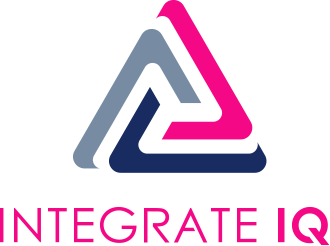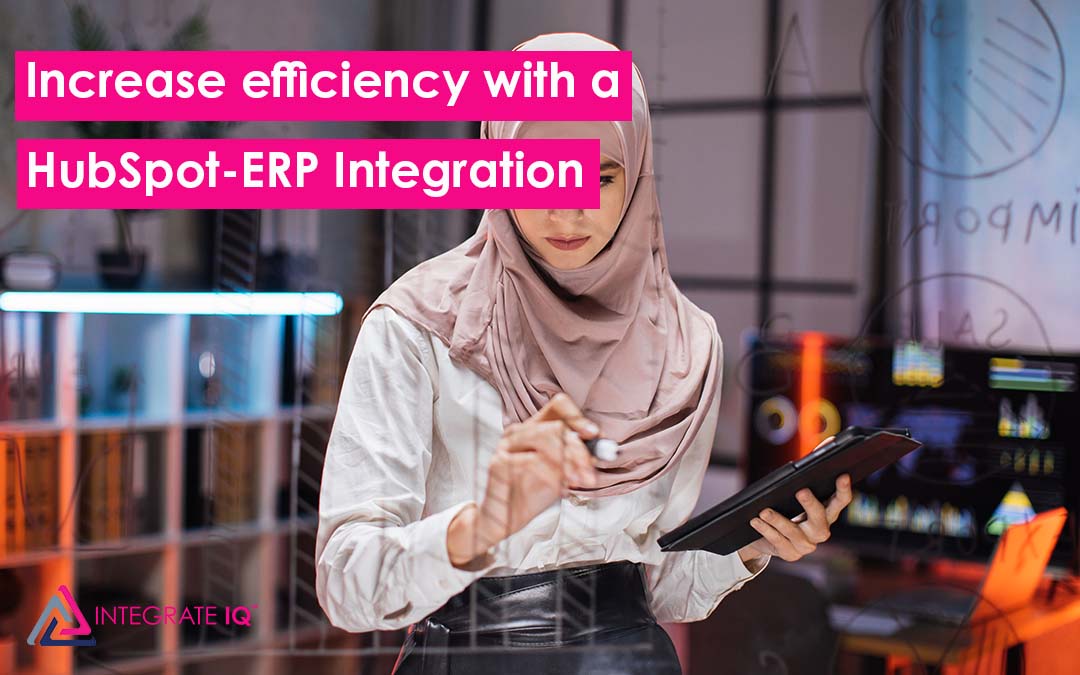Efficiency is paramount to success. One powerful way to streamline operations and improve overall efficiency is by integrating your Enterprise Resource Planning (ERP) system with HubSpot, a leading marketing, sales, and customer service platform. This powerful combination of HubSpot and ERPs like Oracle’s NetSuite, Microsoft Dynamics, or proprietary industry platforms like RealGreen helps unlock new levels of productivity and streamlines business processes. In this post, we explore the top features of HubSpot-ERP integration that can significantly increase efficiency.
Centralized Data Management
One of the most significant benefits of HubSpot-ERP integration is the centralization of data management. Connecting these two systems ensures all relevant customer, sales, and inventory data is consistently up-to-date across your organization. Benefits include:
- Improved data accuracy: By reducing manual data entry and automating data transfer processes, HubSpot-ERP integration can help eliminate human error and improve overall data accuracy.
- Real-time data syncing: Integration enables automatic data syncing between HubSpot and your ERP system, ensuring that customer information, order details, and inventory levels are always current and accurate.
- Elimination of data silos: By connecting HubSpot and your ERP system, data silos are broken down, promoting cross-departmental collaboration and more informed decision-making.
Streamlined Sales Processes
HubSpot-ERP integration can streamline your sales processes, enabling your sales team to close deals more efficiently and improve overall productivity. Key features related to streamlined sales processes include:
- Automated sales order creation: When a deal is closed in HubSpot, integration with your ERP system can automatically generate a sales order, reducing manual data entry and ensuring accurate order processing.
- Real-time inventory information: With access to real-time inventory data from your ERP system, your sales team can provide more accurate and timely information to customers, improving customer satisfaction and promoting long-term customer relationships. Check out Stock IQ for a seamless way to get real time inventory information in HubSpot.
- Improved sales forecasting: By connecting HubSpot’s sales data with your ERP system’s inventory and financial data, you gain a more comprehensive understanding of your sales performance and trends, leading to improved sales forecasting and more informed business decisions.
Optimized Marketing Campaigns
Integrating HubSpot with your ERP system helps your marketing team create more targeted and effective marketing campaigns, driving higher engagement and conversion rates. Key features related to optimized marketing campaigns include:
- Data-driven campaign personalization: By leveraging customer data from your ERP system, your marketing team can create personalized campaigns that resonate with specific customer segments, leading to increased engagement and higher conversion rates.
- Closed-loop reporting: Connecting HubSpot’s marketing data with your ERP system’s sales data can help your marketing team gain insights into which campaigns are driving the most revenue, enabling them to optimize marketing spend and allocate resources to the most effective campaigns.
- Improved lead scoring: By incorporating customer data from your ERP system, you can create more accurate and comprehensive lead scoring models in HubSpot. This can help your sales team prioritize their efforts on the most promising leads, improving overall sales efficiency.
Enhanced Customer Service
HubSpot-ERP integration can also help improve your company’s customer service by providing your customer support team with access to relevant customer data and streamlining their processes. Key features related to enhanced customer service include:
- Consolidated customer support data: By connecting HubSpot’s customer service data with your ERP system, your support team can have a more comprehensive view of customer interactions, including purchase history, order status, and communication history. This can help them resolve customer issues more quickly and effectively.
- Streamlined support ticket management: Integrating HubSpot and your ERP system can automate the process of creating support tickets based on specific events, such as order issues or product returns. This helps ensure that customer concerns are addressed promptly and efficiently.
- Improved customer satisfaction: With a more complete understanding of customer interactions and history, your support team can provide personalized and accurate assistance, leading to improved customer satisfaction and increased customer loyalty.
Better Product Management and Pricing Strategies
By connecting HubSpot with your ERP system, you gain valuable insights into customer preferences and demand trends, helping you optimize your product management and pricing strategies. Some features in this area include:
- Product performance analysis: Integrating HubSpot’s sales and marketing data with your ERP system’s product and inventory data helps you better understand which products are performing well and which may need to be reevaluated. This helps inform product development and inventory management decisions.
- Pricing optimization: By analyzing customer purchase data from your ERP system in conjunction with HubSpot’s sales and marketing data, you gain insights into customer price sensitivity and demand elasticity. This helps you develop more effective pricing strategies that maximize revenue and profitability.
- Cross-selling and upselling opportunities: With a comprehensive view of customer preferences and purchase history, your sales and marketing teams can identify potential cross-selling and upselling opportunities, driving increased revenue and customer value.
Improved Reporting and Analytics
Integrating HubSpot and your ERP system can help you generate more comprehensive and accurate reports and analytics, enabling your organization to make more informed business decisions. Some features in this area include:
- Unified reporting: By consolidating data from HubSpot and your ERP system, you can create unified reports that provide a holistic view of your company’s performance across sales, marketing, and operations.
- Advanced analytics: Combining HubSpot’s data with your ERP system’s data helps you uncover hidden trends and patterns in customer behavior, sales performance, and marketing effectiveness. This leads to more informed decision-making and strategic planning.
- Real-time insights: Real-time data syncing between HubSpot and your ERP system helps you monitor your business performance in real-time, enabling you to make timely adjustments and react quickly to changing market conditions.
Integrating HubSpot and your ERP system can lead to significant benefits across various aspects of your business operations, including centralized data management, streamlined sales processes, optimized marketing campaigns, enhanced customer service, improved product management and pricing strategies, better reporting and analytics, and seamless integrations with other applications. By leveraging these features, your organization can unlock new levels of efficiency and productivity, driving growth and success.
Integrate IQ can help unlock these benefits. Call us at (866) 293-4873 or email sales@integrateiq.com for ideas and additional support.

